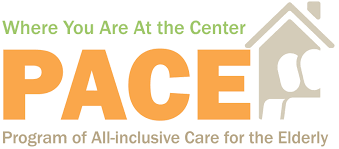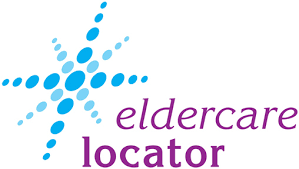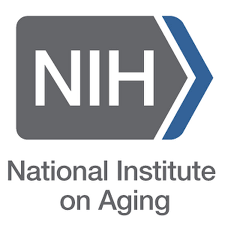It’s important to understand that there are many resources available to seniors aging at home to put off the need for senior housing and a retirement community and ensure we live independently.
This can include anything from in-home care to personal care and assisted-living from caregivers other senior care. In fact, there are programs and associations dedicated to helping seniors in every aspect of their lives.
Whether you need help with your taxes, transportation, medical insurance, finding the right caregiver service, modifying your home, or finding out what government benefits you may be eligible for, there are lots of great resources that can help you get the help you need. In this article, we’ve listed 10 resources that can provide valuable information and help to seniors living independently.
1. National Council On Aging
Known as both a respected national leader and trusted association dedicated to helping people aged 60+, the National Council on Aging works with nonprofit organizations, governments, and businesses in order to provide community programs and services. This is a great place to find what senior programs are available to assist with healthy aging and financial security.

2. AARP
The AARP is a nonprofit, nonpartisan organization whose focus is helping people 50 and older to improve the quality of their lives. Its website hosts helpful information to seniors around topics such as healthy living, senior discounts, products, and news specific to seniors. In addition, there is the AARP Foundation.
The AARP Foundation is AARP’s affiliated charity that works to assist low-income seniors in getting the necessities of life such as nutritious food, affordable housing, a steady income, and social integration. Volunteers, legal advocates, and organizations come together to create effective solutions for older adults who may be struggling.

3. Programs of All-Inclusive Care for the Elderly (PACE®)
Programs of All-Inclusive Care for the Elderly (PACE®) assist people who are age 55 or older by providing and coordinating all the types of care a senior living at home might need such as medical care, personal care, rehabilitation, social interaction, medications, and transportation. PACE can be contacted by calling 1-800-MEDICARE; TTY users should call 1-877-486-2048 or visit their website.
To qualify for PACE seniors must be certified by their state to need nursing home care and live in a PACE service area (over 230 PACE centers in 31 states).

4. Eldercare Locator
Eldercare Locator is a great resource for seniors. As a free national service of the US Administration on Aging (AoA) and an initiative of National Association of Area Agencies on Aging (n4a), it helps find local resources available to seniors such as legal and financial support, caregiving services, home repair and modification, transportation and more.
You can contact the Eldercare Locator by calling 800-677-1116 or by visiting their website.

5. Area Agencies on Aging (AAA)
Area Agencies on Aging is a network of over 620 organizations across America servicing local seniors (60+). Most of the agencies serve a specific geographic area of several neighboring counties, although a few offer services statewide. Each Area Agency on Aging provides valuable information and assistance with programs that can help seniors.
Many Of The Typical Programs In Each Area Include:
- Nutrition and meal programs (counseling, home delivered or group meals)
- Caregiver support (respite care and training for caregivers)
- Information about assistance programs and referrals to administrators
- Insurance counseling to seniors (to help understand and maximize the benefits of their insurance such as Medicare)
- Transportation (information about coordinated shared, non-medical transportation services)
- In addition, several agencies can assist families to complete applications for programs such as Medicaid, respite care, and certain veterans’ programs. As well, they may also have case management services to seniors in the area.tion about coordinated shared, non-medical transportation services)
- In addition, several agencies can assist families to complete applications for programs such as Medicaid, respite care, and certain veterans’ programs. As well, they may also have case management services to seniors in the area.
The National Association of Area Agencies on Aging has a website where you can find the location of your local AAA.

6. National Institute on Aging
The National Institute on Aging (NIA) is under the National Institute on Health and is actively dedicated to conducting research on aging as well as the health and well-being of older individuals.
The NIA is an important resource when it comes to health topics for the elderly and has helpful information and news regarding the nature of aging and the aging process, as well as diseases and conditions associated with growing older.
The NIA also runs a program called Go4Life, which is a great tool for seniors at home in starting an exercise and physical activity routine. It’s designed to help adults 50+ incorporate exercise and physical activity into their daily lives by providing helpful information, videos, and tips.

7. Meals on Wheels
Meals on Wheels known to most people is a meal program across America. In fact, it operates in just about every community, through more than 5,000 independently-run local programs. Each community runs its Meals on Wheels based on the needs and resources of their communities, but they are all dedicated and focused on providing seniors with nourishing and healthy meals in their own homes.

8. Health Finder
Healthfinder is a service under the U.S. Department of Health and Human Services. This website provides links to helpful health-related websites, support, and self-help groups, in addition to as government agencies and nonprofit organizations that assist seniors.

9. Guide to Long-Term Care for Veterans
For senior veterans living at home and enrolled in the VHA health care system, the Guide to Long Term Service and Supports can provide helpful guidance to resources and information about long-term care.
Their website explores the various home and community-based and residential care available to aging veterans. It provides information on available programs, as well as helpful tools, and information about how to stay healthy as you age.

10. The National Directory of Home Modification and Repair Resources
The National Directory of Home Modification and Repair Resources is a useful resource when it comes to finding qualified local services and professionals that can help you modify and renovate your home. At some point, seniors aging at home will need to make adjustments to allow for better mobility and access as part of ensuring a safe and practical home environment.
In 1990, a nationwide survey of state and local agencies, organizations, and professionals was conducted to create this list and since that time hundreds of professionals in home repair and modification have been added. On their site, they specifically state that the list is for informational purposes and individuals must use their own caution and judgment when using these resources.

Knowing Where to Look Is Important

Living independently as a senior doesn’t mean that you are alone. In fact, there are many services and programs specifically geared at helping seniors so they can live healthy, balanced lives at home in dignity.
As a senior living independently, it’s important to know what types of programs, information, and benefits are available so you can live your best life.
As a senior living independently, it’s important to know what types of programs, information, and benefits are available so you can live your best life. In this article, we aimed to provide you with the best resources available when it comes to professional, comprehensive, senior-oriented organizations.
From these resources you can get helpful information and support for just about every facet of life such as health, nutrition, finance, home, transportation, recreation, caregiving assistance, continued learning, and the list goes on. Don’t hesitate to explore their website or contact them directly for more information or assistance.
Some resources may already be familiar to you and some may be new, however, whatever the question or problem, knowing where to look is the first the step. Hopefully, the resources we’ve listed above will give you a head-start in getting help and information you may need to stay independent, healthy, and happy as you age.
Do you want to cite this page? Use our ready-made cite template.
